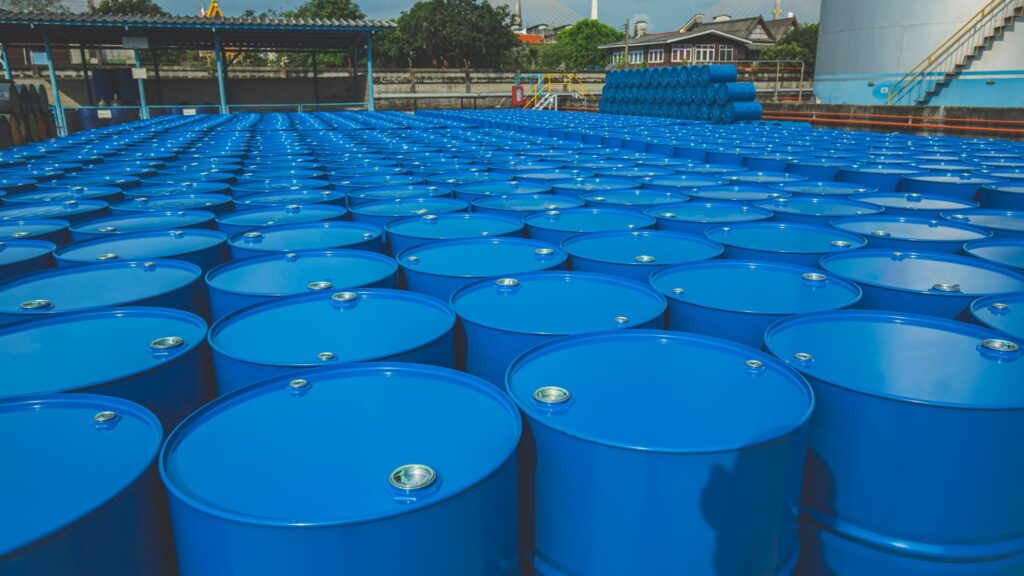What Are Direct Participation Programs (DPPs) for Oil and Gas?

The energy sector’s backbone is reinforced by innovative financial instruments, among which Direct Participation Programs (DPPs) for oil and gas investment shine prominently. A DPP is a mechanism that allows individuals to invest directly in oil and gas assets, engaging investors with the tangible threads of the energy industry’s tapestry.
How do DPPs function in the oil and gas sector?
Investors keen on harnessing the lucrative pulse of oil and gas projects need to understand the framework of DPPs. By investing in DPPs, one essentially buys into the equity of oil and gas endeavors, gaining direct exposure to the risks and rewards. This financial symbiosis enables investors to participate in potential cash flow from successful wells while also benefiting from substantial tax deductions associated with drilling costs.
DPPs: The Different Ownership Types
Ownership in a DPP can take various forms, each with its unique complexion of risks and rewards.
Limited Partnership Ownership
Limited Partnerships (LPs) are a popular form of DPP where investors become limited partners, contributing capital while the general partner manages the day-to-day operations. The investors’ liability is limited to their investment in the partnership.
Working Interest Ownership
Alternatively, a Working Interest grants investors a more hands-on stake in the oil and gas operation, translating into a direct involvement in the extraction of these resources, though it comes with an increased exposure to operational risks.
Why Invest in DPPs for Oil and Gas?
Investment in DPPs is not merely a financial decision; it’s a strategic maneuver in the complex chess game of asset allocation.
Advantages of DPPs
Investors often gravitate towards DPPs for several compelling reasons:
- Direct access to the profits from oil and gas sales.
- Favorable tax benefits, including deductions on drilling costs and depletion allowances.
- Potential for significant returns if the underlying commodity prices surge.
Disadvantages of DPPs
Conversely, some deterrents include:
- The volatility of the oil and gas markets can lead to unpredictable cash flows.
- The inherent risks of drilling operations and commodity price fluctuations.
- Illiquidity and long-term engagement without the ease of exit as seen in traditional equity markets.
What Are the Different Types of DPP Investments for Oil and Gas?
A DPP in oil and gas is not a monolith but a mosaic of investment opportunities, each with distinct risk profiles and operational strategies.
Exploratory Drilling
Investing in exploratory drilling projects means searching for new oil or gas reserves—a high-risk endeavor with the potential for high reward if a new deposit is discovered.
Developmental Drilling
Developmental drilling targets areas near proven reserves, presenting a somewhat lower risk as the surrounding geographical data supports the presence of oil or gas.
Working Interest
A Working Interest DPP gives investors a direct stake in the oil and gas production, typically with more influence and higher risks compared to limited partnerships.
Rework Program
A rework program focuses on existing wells with the aim to enhance production, representing a strategic balance between risk and potential return.
Who Can Invest in DPPs for Oil and Gas?
When contemplating direct participation in oil and gas ventures through Direct Participation Programs (DPPs), understanding the investor eligibility criteria is crucial. DPPs are not for everyone; they are specifically designed for individuals who meet distinct financial and experience qualifications, ensuring that only those with the capability to bear the potential risks enter such investments.
Accredited and Qualified Investor: What Does It Mean?
An accredited investor is a term derived from U.S. securities law that defines a person or entity qualified to deal in investments not registered with financial authorities, by virtue of their income, net worth, asset size, governance status, or professional experience.
The Securities and Exchange Commission (SEC) has outlined specific criteria for an individual or entity to be considered an accredited investor, with aims to safeguard the investor and the integrity of the market.
Why are there accredited and qualified investor requirements?
The premise behind the accredited investor standards is to ensure that those participating in certain investment opportunities are sufficiently knowledgeable and financially robust to handle potential losses. This safeguard creates a more stable financial environment by allowing only those who can afford to take high risks to engage in such ventures, which are often less regulated and have higher stakes than standard investments.
How to become an accredited investor?
Becoming an accredited investor involves meeting stringent SEC requirements. This may include having an annual income exceeding $200,000 ($300,000 for joint income) for the last two years with the expectation of earning the same or a higher income in the current year, or a net worth exceeding $1 million, either alone or together with a spouse, excluding the value of one’s primary residence.
What are the Things to Consider Before Investing in Oil and Gas through DPPs?
Investing in DPPs within the oil and gas sector requires careful consideration of various crucial factors. These investments are unique and come with a different set of variables than standard stock market investments.
Oil Prices
The volatility of oil prices significantly impacts the profitability of oil and gas investments. Factors such as geopolitical events, supply and demand dynamics, and market speculation can all lead to price fluctuations. An investor should have an understanding of these market conditions and how they may affect the potential return on investment.
Geology and Production Costs
The success of an oil well is deeply rooted in geological factors—some areas are simply more fruitful than others. Production costs can vary widely, affecting the potential returns. Thus, investors need to consider the geological prospects and the associated costs of production before committing funds to a DPP.
Environmental Concerns
Environmental policies and concerns can have a profound effect on the operation and profitability of oil and gas projects. Regulatory changes, such as stricter emissions requirements or protections for certain areas, can alter the landscape significantly, impacting the viability and potential of a DPP investment.
Operator Experience
The track record and experience of the operator managing the DPP can be a pivotal factor in the program’s success. It’s crucial to assess the team’s past performance and expertise in the energy industry, as seasoned operators often have better strategies and risk management practices in place.
Understanding the Financial Aspect of DPPs
Delving into the financial specifics of Direct Participation Programs reveals a complex landscape where various economic factors interplay to determine the viability and success of an investment.
Income Stream from DPPs
Income generated from DPPs typically comes from the cash flow of the sale of oil or gas. This income can be sporadic and is directly tied to the productivity of the oil wells or gas fields. Investors typically receive monthly or quarterly distributions, which can be highly variable.
Investor Participation Rules
The SEC and other regulatory bodies have established stringent guidelines governing investor involvement in DPPs. These rules are in place to protect both the investor and the integrity of the financial system. They ensure transparency and fair practices within these investment opportunities.
Non-Traded and Illiquid Investments
DPPs are generally non-traded, meaning they are not sold on public exchanges and are illiquid in nature. This can pose significant challenges for investors looking to exit their investment or access funds quickly. It’s essential to understand the long-term commitment required and the potential difficulties in liquidating such an investment.
Are DPPs a Wise Investment Choice?
Evaluating the investment potential of DPPs requires a balanced view of their unique advantages and inherent risks. They are not suitable for every portfolio, but for the right investor, they can offer compelling benefits, especially in the form of tax deductions and a potential for high returns.
How Long Does a DPP Investment Typically Last?
The investment horizon for DPPs can range significantly, often depending on the specific project and its operational lifecycle. Investors might expect to be involved for several years, as these timeframes can range from 5 to 20 years or more. It’s a long-term commitment that requires patience and a tolerance for varying degrees of risk and reward.
Is a DPP a Security?
DPPs are generally considered securities under U.S. law. They are subject to the regulations of the SEC and other regulatory entities like FINRA. This classification has implications for how DPPs are marketed, sold, and managed, and ensures a degree of oversight into their operation.
Advisors and Their Role in DPP Investments
Navigating the complexities of DPPs can be challenging, which is where financial advisors come into play. They play a pivotal role in guiding investors through the intricacies of these investments.
How Can Financial Advisors Assist in DPP Investments?
Financial advisors offer critical support by assessing an investor’s portfolio, risk tolerance, and long-term financial goals to determine if a DPP fits within their overall investment strategy. They provide a layer of financial expertise, which is invaluable when considering the specialized knowledge required to invest in oil and gas DPPs.
Risk Assessment: What to Be Cautious About?
Engaging in DPPs carries specific risks unique to the oil and gas sector. Potential investors must conduct thorough risk assessments, considering the volatile nature of the market, regulatory changes, and environmental issues, among other factors.
Oil and Gas DPP Risks
The risks associated with oil and gas DPPs can be quite substantial. They include, but are not limited to, fluctuations in commodity prices, uncertainties in reserve estimates, operational hazards, and environmental liabilities. Each risk factor can significantly affect the outcome of the investment, necessitating a careful evaluation.
Conclusion
Investing in oil and gas through DPPs presents an array of opportunities and challenges. While there are potential tax benefits and the lure of substantial cash flow, the risks and complexities of such investments cannot be overstated.
It’s a decision that requires a comprehensive understanding of the oil and gas industry, thorough financial analysis, and, often, professional guidance. The content outlined in this guide aims to provide investors with the essential information needed to navigate their journey in oil and gas DPPs successfully.






